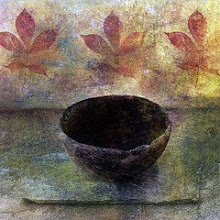 In all the Christmas rush and in what some perceive to be a "war against Christmas," America's growing Buddhist community seem to be missing in action. There are two reasons that many Buddhists typically do not have a problem wishing "Merry Christmas" or participating in other aspects of the holiday season.
In all the Christmas rush and in what some perceive to be a "war against Christmas," America's growing Buddhist community seem to be missing in action. There are two reasons that many Buddhists typically do not have a problem wishing "Merry Christmas" or participating in other aspects of the holiday season.A Buddhist holiday in December
First, there is a Buddhist holiday on December 8th, known as Bodhi Day, which can be absorbed into the Christmas/Hanukkah season. Unlike most Buddhist holidays, based on a lunar calendar like the Jewish festival of Hanukkah (more) or the Christian festival of Easter (more), Bodhi Day does not move around the solar calendar from year to year.
Bodhi Day commemorates the attainment of Enlightenment (Bodhi in the original languages) by Siddhartha Gautama, who thereafter would be called the Buddha, the Enlightened. A good review of the events in the life of the Buddha is A Young People's Life of the Buddha, available here.
A Buddhist Santa Claus
Second, there is Hotei. Traditions about the identity of this fat man in a monk's robes carrying a sack get confused, but does that sound familiar? A fat man with a sack, a Buddhist Santa Claus? Hotei is based on a historical figure, a Chinese monk. Although he is known in Western countries especially as the "laughing Buddha" or the "fat Buddha," he is not technically a Buddha, an enlightened one, but a bodhisattva, a Buddha-to-be (more).
He is identified with Maitreya, who, it is taught, is the next Buddha yet to be. Some traditions say that Hotei gave children sweets from his sack, while other traditions say that he simply carried all his worldly goods in that sack.
Those are easy, fairly superficial Buddhist connections to Christmas, reasons why Buddhists do not have a war against Christmas. But, the one recurring Buddhist objection to Christmas in several blogs and websites is one that many Christians would share, that Christmas has become too commercialized and hectic, that its spiritual values have been diminished, by those who celebrate it.
Happy Bodhi Day! Happy Hanukkah! Merry Christmas!

